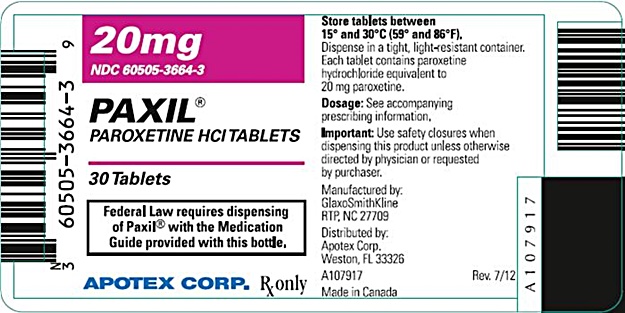Browse This Article
A loophole that allows generic drugmakers to avoid liability over side effects may be ending thanks to a ruling in an antidepressant suicide lawsuit.
Common sense wins! Stewart Dolin was prescribed and took a generic version of the antidepressant Paxil. Within 6 days he was dead at 57 — a suicide. His surviving spouse discovered that suicide is a known risk associated with Paxil (paroxetine) and all SSRI-type antidepressants, not just for people 24 years and younger as the drug label stated.
Because her husband took a generic version of Paxil, Wendy Dolin could not bring suit against the generic drug company. Why? Because the drug label (that long package insert that includes what is supposed to be all the information needed by doctor and patient for safe and effective prescribing) is required by the FDA to be a copy of the brand name drug, Paxil. So Dolin sued GlaxoSmithKline (GSK), the original manufacturer of Paxil. And in a unexpected surprise, she won.
Did you know that if you take a generic drug and you suffer from an adverse event — a really bad side effect — that isn’t warned about on the label but should be, you can’t sue? The Supreme Court found that generic companies have no liability because they don’t control what’s in the drug (it’s a copycat of the original) and have no say on what the label states. Putting patients who have been harmed in the middle of a donut hole of liability, the brand name company has gotten off scot-free because they didn’t make the drug that the person who was damaged took. A free pass for industry and a “you’re out of luck” card to patients with nowhere to turn for needed compensation. Thanks to Dolin, that is hopefully changing.
Patient Advocates Righting Wrongs
I met Wendy Dolin a couple of years ago when we took the same training seminar on patient advocacy. Dolin had started a not-for-profit called MISSD (The Medication-Induced Suicide Prevention and Education Foundation in Memory of Stewart Dolin) while she pursued the legal case. I had just started MedShadow and was fortunately invited to the patient advocacy training program held by National Center for Health Research (funded by PCORI). There I met about 20 patient advocates all with their own story and a passion for righting wrongs.
The victory in the Dolin case may help to hold brand name pharmaceutical companies responsible when patients are harmed by generic versions of their drugs.
I’d heard of the tragic teen suicide stories linked to antidepressants, but until I met Wendy at the seminar, I was unaware that the suicide risks and akathisia (an uncontrollable feeling of agitation and unease) are high across all age ranges with far too many drugs.
At the same training, I met Kim Witczak who started a nonprofit foundation, Woody Matters, in response to her husband’s suicide 5 weeks after starting another SSRI antidepressant, Zoloft. Wendy also sued to hold Pfizer responsible for Woody’s death (the claim was both wrongful death and failure to warn). Woody Witczak was taking the branded version of Zoloft (sertraline), so there were no complications identifying liability. Here are the trial transcripts from Witczak v. Pfizer on the Baum Hedlund Aristide Goldman Law website. The same attorneys have been handling the Dolin case.
Informing Doctors About All Drug Risks
Wendy Dolin’s case is Dolin v. GlaxoSmithKline, U.S. District Court, Northern District of Illinois, No. 12-cv-6403.
The Dolin case highlights that pharmaceutical companies must take care to inform doctors about all possible risks associated with drugs. And patients must also be diligent in learning more about powerful meds before and while taking them.
GSK will appeal the ruling and there will be more trials. But out there protecting you and me are these 2 strong women, among many, who are determined to make change and protect innocent people who are seeking help.







